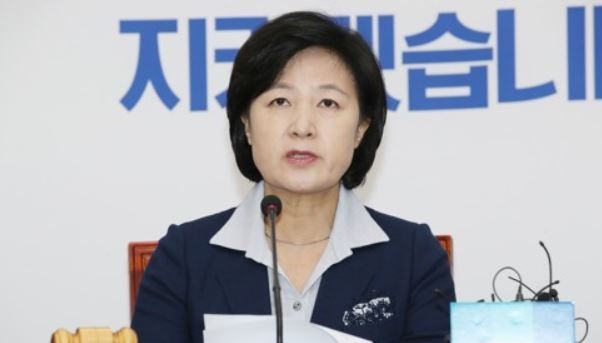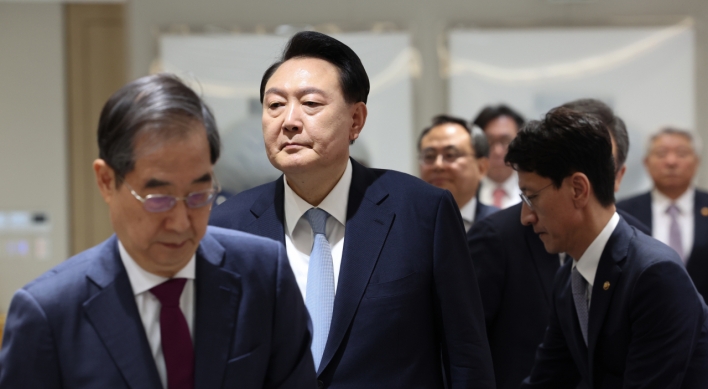Ruling party leaders to join 1st anniversary of candlelight protest
By YonhapPublished : Oct. 27, 2017 - 17:26
The two leaders of the ruling Democratic Party will join a Seoul rally this weekend to mark the first anniversary of the start of the massive candlelight protests that led to the ouster of corruption-tainted former President Park Geun-hye, their aides said Friday.
Their participation in the rally set for Saturday is aimed at remembering the protesters' spirits, but it is expected to be low-key due to concerns that they could be seen politicizing the event and further straining ties with their rival conservative party, observers said.
On Oct. 29, 2016, tens of thousands of citizens gathered at Gwanghwamun Square and called for Park to resign over the corruption scandal involving her and her longtime friend. An accumulated 17 million people had joined the weekend rallies until late April.
Their participation in the rally set for Saturday is aimed at remembering the protesters' spirits, but it is expected to be low-key due to concerns that they could be seen politicizing the event and further straining ties with their rival conservative party, observers said.
On Oct. 29, 2016, tens of thousands of citizens gathered at Gwanghwamun Square and called for Park to resign over the corruption scandal involving her and her longtime friend. An accumulated 17 million people had joined the weekend rallies until late April.

Choo Mi-ae and Woo Won-shik, the chief and floor leader of the ruling party, respectively, will attend the anniversary event as part of their "private" schedules, and they would not request their colleagues to collectively participate, the aides said.
"Choo has decided to join the first anniversary event," her aide told Yonhap News Agency, declining to be named. "She would not deliver any official remarks, but be there as one of the citizens."
The rally comes as criticism has grown that the ruling bloc has burrowed into politically charged cases to address the alleged misdeeds related to the former conservative governments when citizens want more attention to be given to their livelihood issues.
Moreover, the ruling party has to muster up support from the conservative bloc to enact their legislative goals such as raising tax rates for the top earning individuals and companies, and revamping power organs such as the prosecution, long accused of political bias. (Yonhap)







![[KH Explains] How should Korea adjust its trade defenses against Chinese EVs?](http://res.heraldm.com/phpwas/restmb_idxmake.php?idx=644&simg=/content/image/2024/04/15/20240415050562_0.jpg&u=20240415144419)











![[Today’s K-pop] Stray Kids to return soon: report](http://res.heraldm.com/phpwas/restmb_idxmake.php?idx=642&simg=/content/image/2024/04/16/20240416050713_0.jpg&u=)